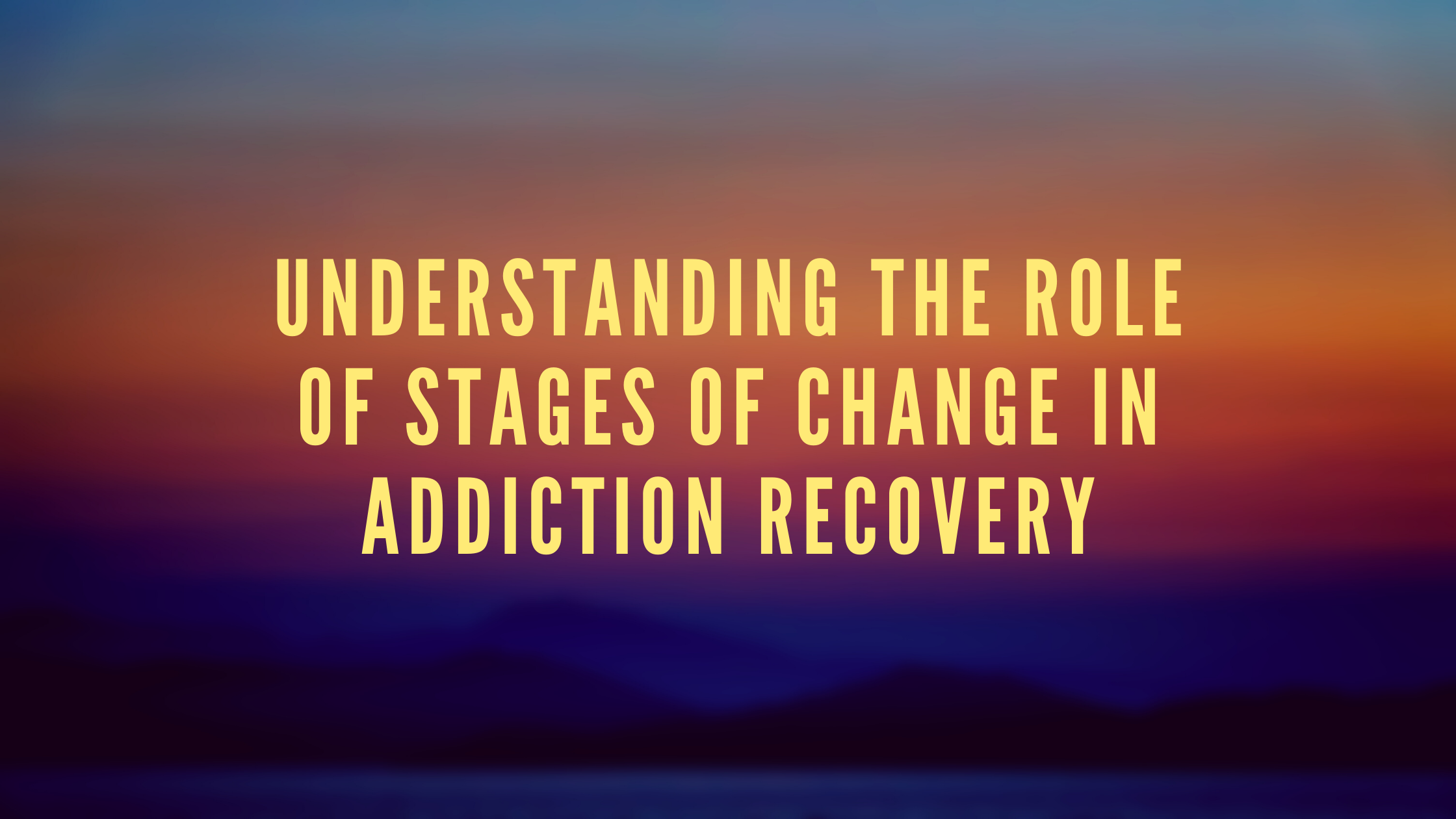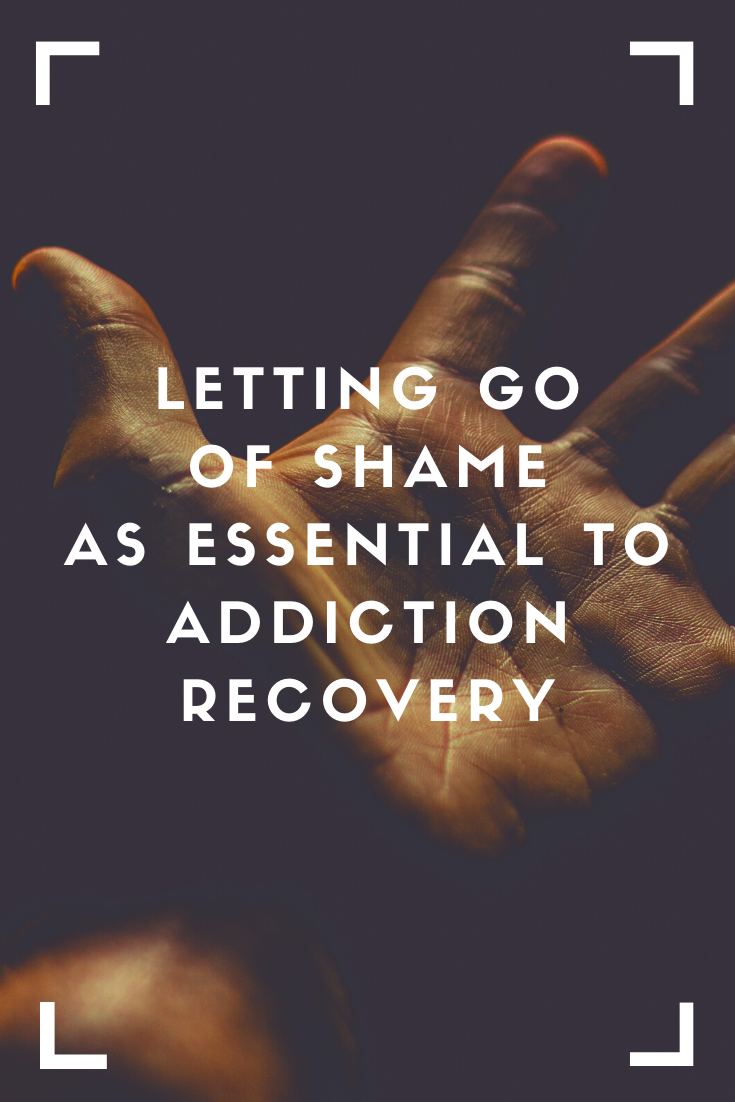It can be confusing to watch an addict make choices that seem self-destructive, continuing in patterns of behavior despite major consequences, unwilling to stop and make a significant change in their lives.
It’s even more bewildering to be in the midst of addiction yourself, facing fluctuating layers of willingness to change within yourself. Some days you might feel ready to tackle whatever’s necessary to experience freedom from the addiction. But a few hours later, you might find yourself justifying your behavior and explaining to yourself why it isn’t really that bad. What gives?
The Transtheoretical (Stages of Change) Model
In 1970s and 1980s, James Prochaska and Carlo DiClemente developed the transtheoretical model to explore the mechanisms of change in problematic behavior patterns, including addictions. Their model seeks to understand resistance to behavior change in many areas, ranging from eating habits to addictions.
The transtheoretical model has formed the foundation of a new approach to targeting addiction. Often addicts are aware of a need to change and have begun to confront themselves, which can create shame surrounding their behaviors that backfires. Toxic shame creates lack of motivation and hopelessness. Motivational interviewing, on the other hand, is a type of therapy that focuses on these mechanisms of change to help an addict in recovery understand how to take steps to move forward.
This shift in strategy involves a more personalized approach in treating addiction. It helps you understand the effects of the addiction on your personal life and identify what needs to change from that perspective within the context of a vision for the future, rather than just making changes out of shame or a belief that you “should” change.
The Six Stages of Change
The transtheoretical model covers five main stages of change: precontemplation, contemplation, preparation, action, and maintenance. When discussing addiction, we can add a sixth category, relapse, as an optional stage that often characterizes these attempts to change. These stages are not necessarily linear, meaning you might jump forward and backward in the progression, but the path to recovery involves working through each to get to a place of long-lasting change.
Precontemplation
In this stage, you do not consider your behavior to be a major problem. Instead, you are more focused on the benefits that come from engaging in the behavior. Denial is running the show, characterized by shifting blame for problems onto others.
You are likely resistant to any confrontation or advice about changing your behavior in this stage. Individuals in court-ordered therapy or rehab recommended by a family member or spouse often begin here. Usually, an experience of consequences to behavior is what propels someone into the next stage.
Examples of Precontemplation Thoughts:
“It’s not that big of a deal. I’m not hurting anyone. I deserve this.”
“If my spouse/family member/friend just were more open and let me do my own thing, everything would be fine.”
You may not notice any thoughts about the behavior at all.
Questions to Ask Yourself in Precontemplation:
What problems am I experiencing in life? How might my substance use/problematic behavior be contributing to these problems?
What are the pros and cons of my behaviors?
If I’m not experiencing consequences currently, what are possible consequences I could face in the future?
What long-term negative outcomes could come from this behavior?
Contemplation
In the contemplation stage, you likely have begun to think about changing the behavior. Usually, this is precipitated by some negative experience, such as consequences (like a DUI or STD diagnosis) or cognitive dissonance about differences between your values and your behaviors. Ambivalence is a hallmark of this stage: you’re feeling strong desires both toward staying in the problematic pattern and changing the behavior.
Learning, gathering information, and understanding the addictive process are important in contemplation. To move into the next stage, you need to increase your knowledge about addiction and recovery, even if you aren’t willing to make any major changes yet. The shift into the next stage occurs when you begin to solidify your vision for the future.
Examples of Contemplation Thoughts:
“I can see that this is a problem, I’m just not sure I want to change.”
“Why stop something that feels this good?”
“I’ll change someday, but I’m not ready to right now.”
Questions to Ask Yourself in Contemplation:
What personal values am I violating by continuing in this behavior?
How are the consequences I’m facing now affecting me and my future?
What am I learning about addiction and recovery that fits with my experience?
What are the costs and benefits of my behavior?
Preparation
The preparation stage involves planning an approach to change. You are getting ready to implement the strategies you learned about in the contemplation stage, even though you might still not be ready to act on that plan. Ambivalence is still present, but you are more willing to consider the work required to make a lasting change.
In preparation, you create a specific, structured plan for how you could change. Even if you still have misgivings, you are beginning to rehearse in your mind the actions it would take to leave behind your pattern of behavior. In recovery language, this is where you begin to “trust the process” and learn more about steps involved in recovery.
You might test the waters by attending a 12 Step meeting or support group, purchasing recovery-related books and resources, sharing your desire to change with others, seeking accountability, getting into individual or group therapy, or attending an inpatient or intensive treatment center.
Examples of Preparation Thoughts:
“I can see that it’s possible to change, and I’m beginning to want it, but I’m not sure yet how I’m going to do it.”
“I need a plan of action if I’m going to make any lasting change.”
Questions to Ask Yourself in Preparation:
What kind of change would I like to make? What are the steps to get there?
What resources or social supports might I need to help me in this change?
What are the triggers that influence me to use my substance/engage in my behavior? How might I need to change behavior to limit these?
Action
Real change begins to happen in the action stage, as you put plans created during preparation into action. This change may be drastic, or it can involve smaller, incremental changes. While the first three stages are more internal and often don’t affect external behavior, others can see the change in this stage.
The action stage can be a stressful experience, so preparation must be done beforehand to address triggers with new, healthy coping mechanisms. There is a distinct shift away from using addiction as a method to cope with stress or pain, instead choosing alternate ways of coping.
Examples of Action Thoughts:
“I have a plan, and I’m choosing to move forward even when I don’t feel like it.”
“I am learning new ways to handle my stress.”
Questions to Ask Yourself in Action:
What is my relapse prevention plan?
What are alternate ways I can deal with stress?
What’s working from my plan, and what do I need to adapt or change in my approach?
What skills do I need to strengthen to maintain sobriety/change?
Maintenance
The maintenance stage is a continuation of the progress achieved in the action stage: regularly implementing your plans over time to create long-term change. It requires reflecting back on the two previous stages (preparation and action) to clarify what’s working and what isn’t. Without maintenance, the likelihood of relapse increases significantly.
Stress can arise in this stage, highlighting the importance of the stress management components of the action stage. Other challenges come when you’ve had a period of abstinence or moderation of behaviors, as this can put your guard down and lead you to reduce supportive behaviors. You may begin minimizing the consequences, as the high of the early parts of the action stage has worn off. Maintaining the behaviors committed to in the action stage is essential for staying sober and committed to recovery without relapse.
Examples of Maintenance Thoughts:
“One day at a time.”
“My recovery process works if I work it.”
“I need to keep moving forward in my plan, even if sometimes I don’t feel like it.”
Questions to Ask Yourself in Maintenance:
What routine behaviors do I need to keep in place to avoid relapse?
Where could I be opening myself up to the possibility of relapse, and how can I close those doors?
How can I stay connected to the original vision for the future that motivated me to change this behavior?
Relapse
Slips and relapses do occur in addiction recovery. Instead of fearing the possibility of relapse and descending into a spiral of shame if it happens, instead recognize relapse as part of the process of recovery. At the same time, know that this stage is optional – it does not need to be part of the process if action is maintained through commitment to the maintenance stage.
When relapse occurs, it can propel you back into the precontemplation or contemplation stage of your process of change. To leverage relapse to benefit your recovery process, use the experience to solidify your understanding of what recovery means and your commitment to the process of change you’d like to make.
Examples of Relapse Thoughts:
“Yes, I did the behavior I’ve been abstaining from, but was it really that bad?”
“Acting out felt good, and I’m not sure I want to stop again.”
“I don’t think this is a problem to do this, as long as I don’t do that.”
“I can’t believe I did that.”
“I’m back in my addiction, and I feel hopeless about getting out.”
Questions to Ask Yourself in Relapse:
What do I need to review from the work in the contemplation, preparation, or action stages to remind myself of my vision for the future?
What recovery-related behaviors do I need to recommit to?
What wasn’t working about my approach that set me up for a relapse?
What can I learn for the future as I continue to explore the impact of this behavior on my life?
Sources and More Information on the Transtheoretical Model:
The Stages of Change Model of Overcoming Addiction - Verywell Mind
The Stages of Change - Smart Recovery
Brief Interventions and Brief Therapies for Substance Abuse - SAMHSA





